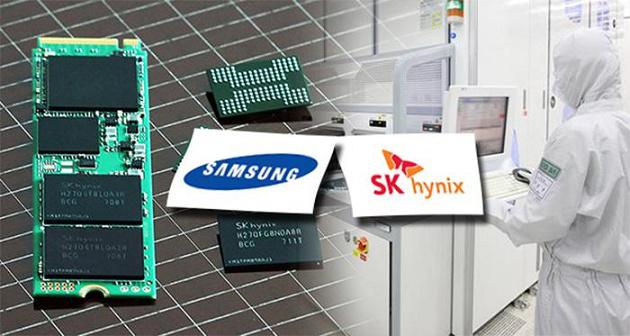Memory prices decline and semiconductor industry slowdown cause Korea’s worry about export growth dropping
There is no doubt that memory prices will fall in 2019, which is against Samsung, SK Hynix and Micron’s will. What’s more, the drop may exceeds previous expectation, which will drag growth rate of global semiconductor industry in next year. According to WSTS the production value of 2019 is predicted to be $490.1 billion with a 2.6% increase this year, while it is predicted to be $502 billion with a 5.2% increase earlier. The slide of semiconductor production value mainly reflects in memory prices reduction, which turns into a slight dip from surge. Meanwhile, Korea is worrying about its export growth dropping.

The headquarters of WSTS is based in San Jose, California, a non-profit industrial organization who has 42 members including Samsung, SK Hynix, Micron, TI, Sony, Toshiba, Infineon Technologies and so on.
WSTS lowered output expectation of global semiconductor industry in 2019 earlier. The expected output released in October 2018 is up to $502 billion with a 5.2% increase compared with last year. However, latest data cuts to $490.1 billion, which increases 2.6% compared with last year.
The main reason of semiconductor production value decline is memory prices reduction. Memory has a 61.5% surge in last year, whose growth rate is up to 33.2% this year. However, the growth rate will decrease by 0.3% in 2019, which means there will be a negative growth of memory after supercycle.
There is still a growth in global semiconductor market, expected value of WSTS is raised to $477.9 billion from $477.1 billion, with growth rate up to 15.9% from 15.7%. According to WSTS, most market segments are rising this year, which is based on memory chips with everywhere in America, Europe and Asian-Pacific region growing. However, there will be a reversion in memory market in next year according to WSTS.
The falling of high memory prices is most worried by Korea. According to Businesskorea’s report, negative growth of global semiconductor will greatly affect Korea’s export in auto, shipbuilding, iron and steel. KITA recently predicted Korea’s export growth will decline to 5% from 30% in next year. As semiconductor accounting for 21.2% of total export at present, Korea’s export growth rate will decline to 3% from 5.8% in next year.
